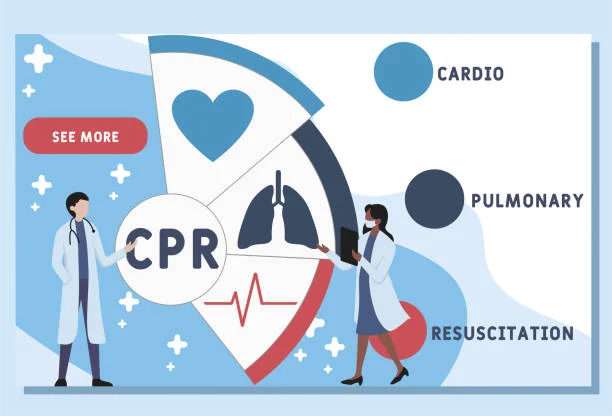Every second counts in an emergency, and knowing Cardiopulmonary resuscitation (CPR) could put you in the position to save a life. CPR certification is required in many fields, like healthcare and education, childcare, fitness training, and public safety. Keeping it current often involves earning continuing education (CE) credits. The challenge? Fitting training into an already packed schedule. That’s where online CPR courses come in. They are flexible, recognized, and let you stay certified without putting your life on pause. In this post, we’ll walk through why online CPR certification with CE credits is valuable, who needs it, and how to choose the right course.
Why Choose Online CPR Certification with CE Credits?
CPR certification is a skill that saves lives. Still, finding time for in-person training can be difficult. Although 65% of Americans have had CPR training at some point, only 18% are up to date. Taking an online CPR course with CEUs is a convenient way to keep your certification current. Other advantages are:
Flexibility and Convenience
Online CPR courses let you train on your own time. You can study in the evening, on weekends, or whenever your schedule allows. They are a practical choice for anyone balancing work, school, or family—such as a nurse taking classes after night shifts or a teacher fitting training into weekends.
Meets Professional Requirements
If you are in healthcare or a similar field CPR certification with CE credits is usually required. Employers want you to keep your training current, and an approved online course makes that easier. You can finish the training on your own time without traveling or sitting through long in-person classes, and your certification will still meet workplace and regulatory standards.
Up-to-Date Training
CPR guidelines are updated as medical knowledge grows and new research becomes available. A CE-approved course keeps you up to date with the newest methods. That way if an emergency happens you will be ready to respond the right way.
Cost-Effective
In-person classes can be expensive once you add up the course fee, travel costs, and the time you have to take off from work or school. Online courses are usually more affordable, and because you can complete them from home, you save both time and money.
Immediate Certification
With most online providers, you don’t have to wait weeks to receive your proof of certification. Once you pass the test, you can download a digital certification card right away, allowing you to start a new job or meet compliance requirements without delay. Many providers also mail a physical card if you prefer, making the process quick and convenient.
Who Needs CPR Certification with CEUs?
CPR certification with CEUs is useful for a wide range of professionals. It helps meet job requirements while also supporting continuing education and license renewal needs. Here’s who requires CEU credits:
Healthcare Professionals
Doctors, nurses, dentists, and paramedics are expected to know CPR because their patients depend on them during medical emergencies. They also need CEUs to keep their licenses active.
Emergency Responders
Firefighters, Emergency Medical Technician (EMTs), lifeguards, and ski patrol teams often face situations where someone suddenly stops breathing or their heart stops. CPR certification makes sure they are always ready to step in and provide care right away.
Childcare and Education Workers
Teachers, daycare staff, and babysitters take care of children every day. Kids can choke, faint, or have unexpected health problems, and CPR training helps adults know exactly what to do until medical help arrives.
Law Enforcement and Security Staff
Police officers, security guards, and correctional officers are often the first people to respond during accidents or emergencies. Having CPR skills means they can give lifesaving aid before paramedics get there.
Transportation Workers
Flight attendants, cruise ship staff, and bus drivers are responsible for many people while they travel. Since emergencies can happen far from hospitals, CPR training ensures they can respond quickly if someone collapses in transit.
Construction and Trade Workers
Construction sites and trade jobs carry risks like falls, heavy equipment injuries, or electrical accidents. Workers with CPR training can step in immediately and give aid while waiting for emergency services.
Fitness and Sports Professionals
Trainers, coaches, gym instructors, and physical therapists are busy keeping people active. But if a person’s heart or breathing ever stops, CPR training ensures you know what to do. It prepares you to stay calm, think fast, and keep the person alive long enough for help to get there.
What to Look for in CE-Approved Online CPR Courses
Not all CPR courses are alike. Picking one that’s CE-approved matters because it guarantees your certificate is accepted by employers and actually counts. The right course will meet professional standards, keep your skills up to date, and work with your schedule. You need to look for these factors:
Accreditation and Recognition
Ensure that the course you enroll in is accredited by a reputable agency. For example the American Heart Association (AHA), American Red Cross, or other bodies. Accreditation ensures that the training follows official CPR protocols and ensures that your certification is recognized by employers.
Continuing Education Credits (CEUs)
If you need CPR certification for your job, make sure the course provides CEUs that are officially recognized by licensing or credentialing organizations. CEUs not only keep your license valid but also count toward your continuing professional education.
Flexible Learning Options
A good online course should fit into your schedule. Look for self-paced lessons, clear video demonstrations, interactive quizzes, and mobile access that let you learn anytime. Some programs even give you the option to add a hands-on assessment if you want in-person practice.
Valid Certification and Easy Renewal
After you become certified, you are supposed to be issued a card or electronic verification that your employer will accept. The majority of certifications are valid for one to two years, so be sure you check the date.
Stay Prepared with Online CPR Certification
Emergencies can happen when you least expect them. Taking online CPR certification lets you learn at your own pace while earning CE credits and keeping up with the newest safety standards. Whether you’re renewing your certification or getting it for the first time, the right course helps you build confidence and know what to do when time is critical. Enroll in an online CPR program today so you are ready to act when it matters most.






